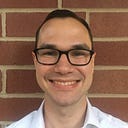What should we do with our life? A story on career.
How does anyone figure out what they should do with their life? We want control, so naturally, try to plan everything out. However, if I ask people further along in life than me whether they could have anticipated doing what they’re doing today, more often than not they say no. Or if people do have a well-defined narrative for their life, it’s likely their life really was closer to random walk than a strategically planned path. However, humans aren’t very good at understanding randomness, so we talk in narrative, which is actually pretty helpful. Therefore, we naturally ascribe a narrative to our careers. So rather than try to precisely plan our future, I think it’s better to take a thematic approach to the long term and get more concrete as the time frame narrows.
A quick aside on randomness: what I mean by random here is simply something we can’t predict with any degree of certainty. The steps we take may be based on the roll of the dice, or based on the roll of dice biased by experience, or ordained by God. But if we can’t predict with accuracy, then we can’t plan precisely, so for all intents and purposes, it’s random. I know I’m taking some liberties with the word “random” and conflating a few different concepts, but I think this approach is helpful for addressing how little we know and can control.
This idea of thinking in long term themes with goals becoming more concrete close in is especially important because our experiences change us. The person we will be five years from now is not the person we are today. So our ideal future is always going to be changing. To find the “one” thing we’re supposed to do is quixotic. It’s much better to survey the landscape at any given point in time, find the next best thing from our current point, and move forward. So should we not plan if it might as well be random and what we want in five years may be different than what we want now?
I think this gets to a constant debate. Do you plan a highly detailed, perfect strategy or do you simply be opportunistic? The quote which has always stuck with me is “plans are useless but planning is everything.” What does this mean?
My interpretation is that the planning process helps us think through scenarios in detail and thus help us make better decisions, regardless of whether things end up exactly as planned. While it helps to think through scenarios and plan a “best” course of action, no one can predict exactly what is going to happen tomorrow and so our plan will be out of date as soon as it’s finished. We go through a cycle of plan -> act -> review -> plan -> act -> review -> ad infinitum. The eternal question is how much time to spend planning before acting, but that’s a question for another day.
So how to apply this all to a career? While we can’’t plan out our whole future precisely with any degree of accuracy, we do need a way to generate and then narrow options. I think we should apply a funnel view with a loose long term life goal, a concrete set of options and plans for the next year or two, and something a little more aspirational that bridges the gap for a five-year time frame. This funnel helps us filter options to those pointing us towards our long term goals. Make the funnel too narrow and we’ll miss great opportunities and may reach a dead end. Make the funnel too wide and we’ll be paralyzed by options. But we still don’t know how to figure out what to put in the funnel in the first place.
I think there are two perspectives, external and internal, we can use to generate options for the funnel. In the external view, we start with a view of the world, what we believe about it, and what opportunity we see to solve problems. In the internal view we start with ourselves, what we fundamentally are drawn to and good at, and then evaluate whether we can use that to solve another person’s problem. Note that both perspectives end in problem-solving as the only thing we’ll ever get paid for is solving another person’s problem.
My next two pieces will be about thinking through these two perspectives and coming up with specific next steps, followed by a final piece on my personal career vision. I don’t think any of this is revolutionary, or even really new, but just ordering my thoughts on the subject,
Update: Part 2 is Here.
My goal here is to flesh out my own ideas, but my opinions may change so please comment to add on or tell me where you disagree. If you find anything factually incorrect, I’ll buy you a drink!
